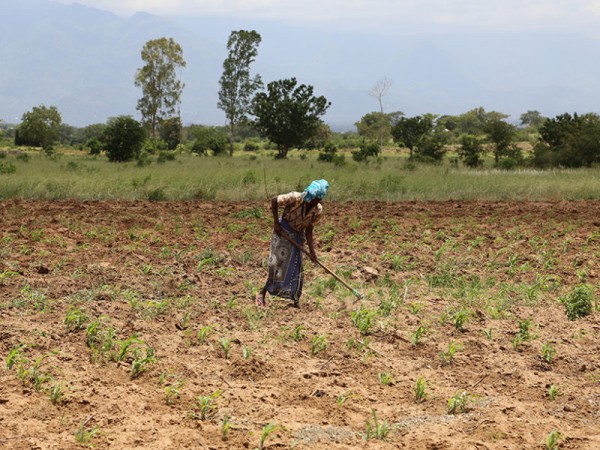AGU EOS Features GEOG Researchers: Sowing Seeds of Food Security in Africa
Sowing Seeds of Food Security in Africa
Food security is one of the most pressing issues, if not the most pressing, faced by many African countries today. And events in recent years have increasingly strained food supplies for populations in sub-Saharan Africa. In 2019, Cyclones Idai and Kenneth ravaged southern Africa and coincided with droughts, extreme flooding, and landslides in southwestern and East Africa [Nakalembe, 2020], all of which devastated smallholder farmers.
Last year brought further shocks and setbacks to crop production across Africa. Farmers in East Africa, for example, faced more devastating floods, the most severe (and still ongoing) desert locust infestation in 70 years, and, of course, the COVID-19 pandemic, which has affected every sector and every food system and has brought global food security into the limelight.
COVID-19 disproportionately affects the most vulnerable communities, but it is also affecting previously food secure communities. In 2019, food insecurity already affected nearly 690 million people globally, and by the end of 2020 more than 100 million people were projected to become food insecure because of negative economic consequences attributable to COVID-19 [Food and Agriculture Organization of the United Nations et al., 2020]. With the number of food-insecure people worldwide projected to exceed 840 million by 2030 [Nakalembe, 2020], we are certainly not on track to achieve the United Nations’ “Zero Hunger” Sustainable Development Goal.
In sub-Saharan Africa, agricultural system shocks in coming years will continue to have severe impacts on the food security of smallholder farmers. Analyzing the nature and extent of these impacts and assessing their significance on livelihoods are important in planning responses and mitigation efforts, but these can become overwhelming tasks with only conventional capabilities like on-the-ground observations and surveys of farmers. Satellite-based Earth observations (EO), which provide crucial information about crops in near real time, can play a vital role in supplementing such capabilities, enabling earlier warnings of disasters and supporting response programs involving risk financing and other measures that reduce food insecurity.
Read the full article in Eos Science News by AGU, authored by GEOG professors Catherine Nakalembe, Christina Justice, Hannah Kerner, Christopher Justice, and Inbal Becker-Reshef.
Published on Fri, 01/29/2021 - 15:23


